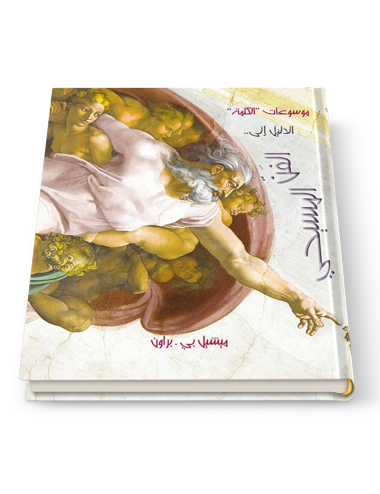The History of Christian Thought
Why would you read about the history of Christian thought? If you are Christian yourself, it helps you to understand about thinkers and the faith of the generations.
0.098 kg - 1.3 kg
Why would you read about the history of Christian thought? If you are Christian yourself, it helps you to understand about thinkers and the faith of the generations.
An examination of the Old Testament and later Jewish writings explores the evolution of the basic concepts of God, Man, history, sin, and repentance, and demonstrates the relevance of traditional beliefs in the contemporary world
A classic in its own time...The original self-help treatise that has inspired countless numbers of men and women throughout the world. Learn how love can release hidden potential and become life's most exhilarating experience. In this fresh and candid work, renowned psychoanalyst Erich Fromm guides you in developing your capacity for love in all its aspectsromantic love, love of parents for children, brotherly love, erotic love, self-love, and love of God. Read by a professional narrator...
The thesis of the book is that modern man, freed from the bonds of pre-individualistic society, which simultaneously gave him security and limited him, has not gained freedom in the positive sense of the realisation of his individual self.
Freedom, though it has brought him his independence and rationality, has isolated him, and made him anxious and powerless.
This isolation is unbearable and the alternatives he is confronted with are either to escape from the burden of this freedom into new dependencies and submission, or to advance to the full realisation of positive freedom which is based on the uniqueness and individuality of man.
The late Carl Rogers, founder of the humanistic psychology movement, revolutionized psychotherapy with his concept of client-centered therapy. His influence has spanned decades, but that influence has become so much a part of mainstream psychology that the ingenious nature of his work has almost been forgotten. Houghton Mifflin is delighted to introduce this preeminent psychologist to the next generation with a new edition of this landmark book.
This dictionary:
Prepared by academics and specialists in the religious sciences, philosophy and history of religions
In fact, Africa is a vast continent encompassing both geographic variation and tremendous cultural diversity. Each of the more than 50 modern countries that occupy the continent has its own particular history, and each in turn comprises numerous ethnic groups with different languages and unique customs and beliefs.
First published in 1968, the year of international-student confrontation and revolution, this classic challenges readers to choose which of two roads humankind ought to take: the one, leading to a completely mechanized society with the individual a helpless cog in a machine bent on mass destruction; or the second, being the path of humanism and hope.
Carl Rogers was a stubborn warrior when he entered many battles - battles in the field of treatment of income with scientific medicine and psychiatry, who tried to prevent psychologists from treating patients..
The book deals with the historical roots of the idea of alienation according to Erich Fromm, and the various manifestations of the idea of alienation as it appears in the writings of modern and contemporary philosophers, especially those influenced by Fromm such as Hegel, Marx, Heidegger, Marcuse and others. It also deals with the different dimensions of man’s alienation from himself and from his world, according to Fromm, using a comparative analytical approach.
In fact, Africa is a vast continent encompassing both geographic variation and tremendous cultural diversity. Each of the more than 50 modern countries that occupy the continent has its own particular history, and each in turn comprises numerous ethnic groups with different languages and unique customs and beliefs.
Christianity has been a central force in the shaping of western culture. It is not surprising, therefore, that the greatest artists down the centuries have sought to paint its story. This book tells the history of Christian art, exploring the purpose behind the masterpieces and looking at the context in which they were created. The modern secular reader who feels detached from the meaning of the paintings will be helped to understand their emotional as well as their asethetic power. And the Christian reader will be encouraged to explore further the wonder and beauty of the Christian cultural legacy. The book includes a final chapter on the way modern artists are continuing and changing the legacy.













